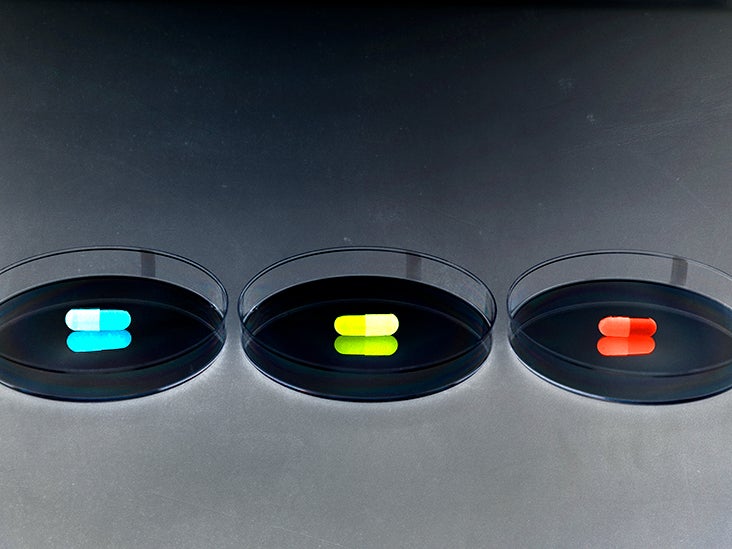
- Antipsychotics may have a protective effect against COVID-19.
- People treated with these drugs may have a lower risk of developing the new coronavirus.
- People who use these drugs may be more likely to experience a milder form of COVID-19 if they get the virus.
- Antipsychotics may reduce the activation of genes involved in inflammatory and immunological pathways associated with severe SARS-CoV-2 infections.
A group of researchers – led by scientists from the mental health unit of the Virgen del Rocio University Hospital in Seville, Spain – found that antipsychotics can have a protective effect against COVID-19.
People treated with these drugs have a lower risk of contracting the virus, or may have milder symptoms if they get the virus.
Some of the findings appear in the journal Schizophrenia research.
“These are very interesting findings that reflect a clinical reality where we see few patients with severe COVID-19, despite the presence of various risk factors,” says Manuel Canal Rivero, a clinical psychologist and lead author of one of the two articles.
Many researchers have studied in recent years whether individuals with severe mental health conditions are more likely to develop SARS-CoV-2 and develop severe symptoms from COVID-19.
In the issue of Schizophrenia Bulletin published on April 28, 2020, a team from the Center for Addiction and Mental Health in Toronto, Canada, discussed why they believe people with schizophrenia and related disorders are more likely to be at risk of developing SARS-CoV-2.
They pointed to features of the condition, such as experiencing hallucinations and having a lower risk awareness. They added that living in crowded environments, such as community housing or prisons, where social distance is difficult, can increase the risk of contracting SARS-CoV-2.
The team wrote that they believe that individuals with schizophrenia and related disorders are more likely to have COVID-19. This is because they are more likely to have poor physical health, be socio-economically disadvantaged and experience stigma and social isolation. Scientists believe that these factors are likely to increase the death rate from COVID-19.
People with severe mental illness are more likely to have diseases such as cardiovascular disease, diabetes and chronic respiratory diseases. The researchers also pointed out that people with schizophrenia are more likely to smoke, a habit that several studies have linked to the development of a more severe form of COVID-19.
Another recent study published in
In contrast, a South Korean study conducted in
Therefore, “Previous investigations into the prevalence of COVID-19 in [the population with severe mental health conditions] led to inconsistent results, ”wrote the Seville researchers.
For the new study, published in Schizophrenia research, the research team examined data for a representative Spanish population of 557,576 adults.
Of these, 23,077 (4.1%) tested positive for COVID-19 between February and November 2020. There were 1,953 (8.5%) hospitalizations associated with COVID-19 and 254 deaths (1.1%).
Among 698 people with severe mental health conditions who received treatment with long-acting antipsychotic treatment (LAI), 9 (1.3%) tested positive for COVID-19. Only one member of the group showed COVID-19 symptoms. No one has to go to the hospital, and no one has died from COVID-19.
This suggests that people treated with these drugs have a lower risk of developing a SARS-CoV-2 infection and that they are more likely to have a milder form of the disease if they get the virus, the researchers.
“The number of COVID-19 patients is lower than expected among this group of people, and in cases where a proven infection occurs, the evolution is benign and does not reach a life-threatening clinical situation,” Canal Rivero said. “These data appear to indicate the protective effect of the medication.”
The research team also points to an earlier review highlighting antipsychotics as possible treatments for Middle Eastern Respiratory Syndrome (MERS) and severe acute respiratory syndrome.
The Seville research team also noted that ‘many of the genes whose expression is altered by COVID-19 are significantly down-regulated by antipsychotics’, according to a press release on their work.
To make this finding, the research team examined the gene expression profile of people with COVID-19 and the gene expression profile of people treated with antipsychotics.
“In a striking way, we have shown how antipsychotics reduce the activation of genes involved in many of the inflammatory and immunological pathways associated with the severity of Covid-19 infection,” said Benedicto Crespo-Facorro, professor at the University of Seville and current Director of the Mental Health Unit at Virgen del Rocío University Hospital, both in Spain.
While prof. Crespo-Facorro stresses that scientists need to do more research, he believes the finding could be significant because it could lead to the treatment of COVID-19 with antipsychotics.
Click for live updates on the latest developments regarding the new coronavirus and COVID-19 here.
